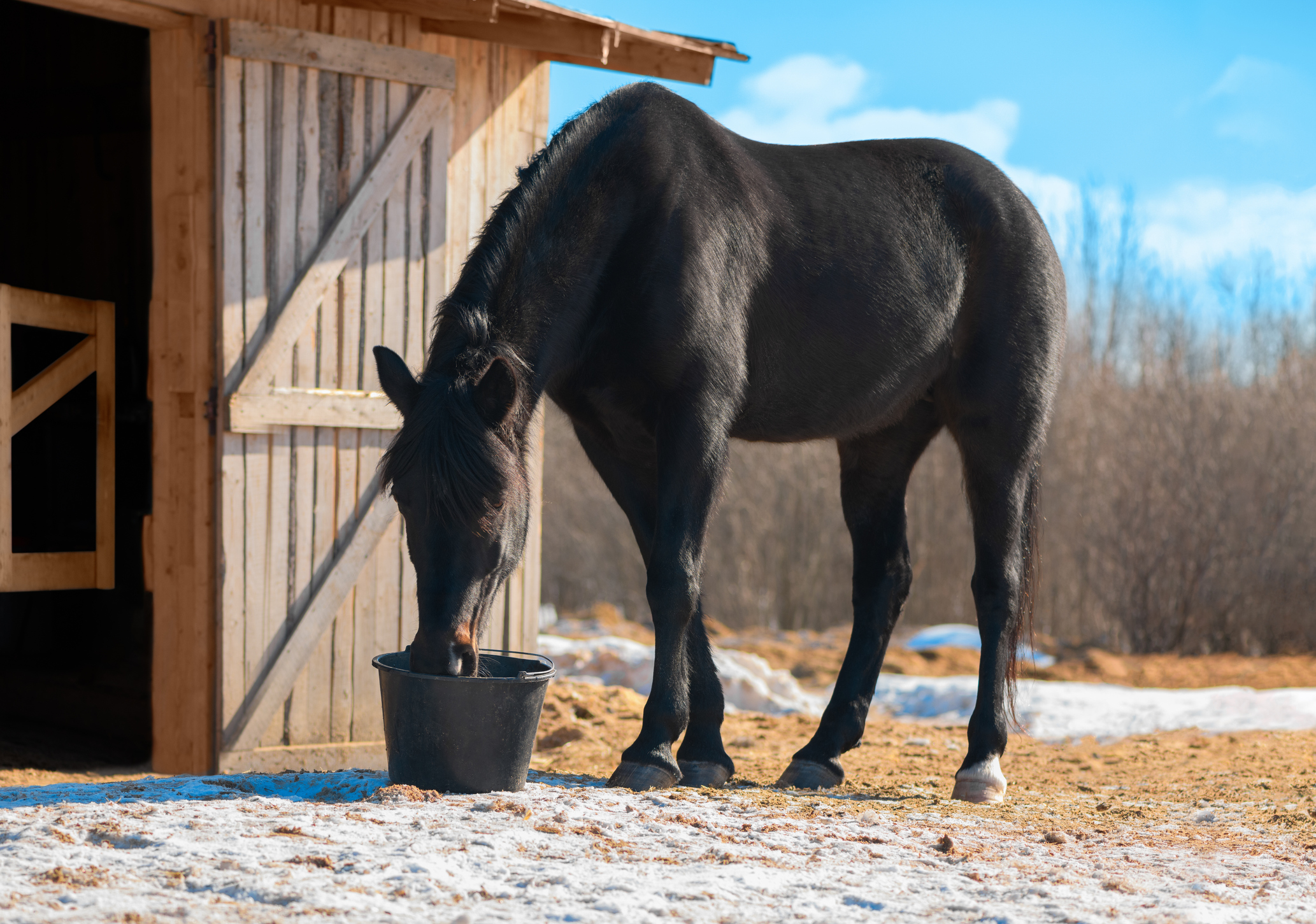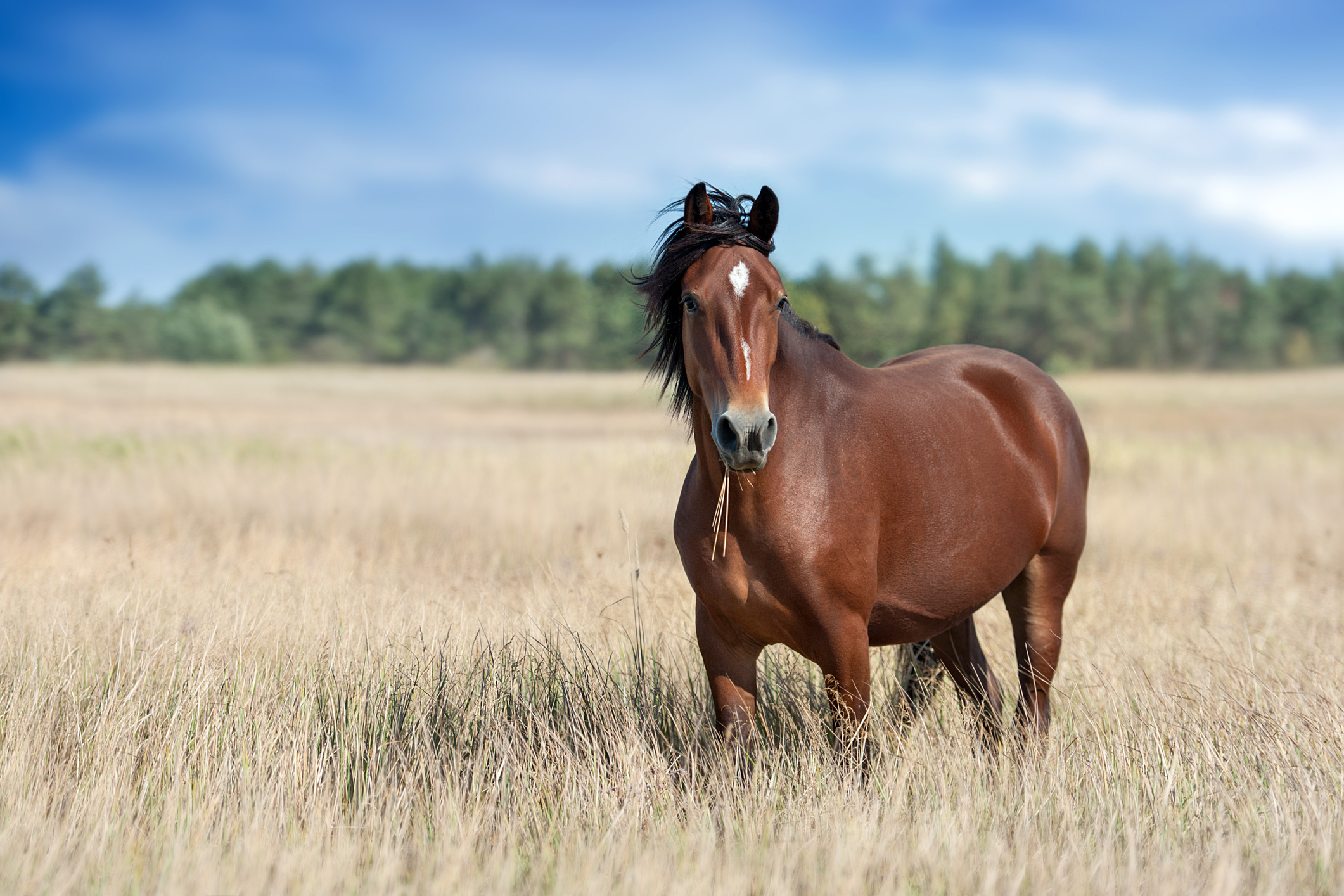Equine health is always a delicate balance, especially when it comes to conditions such as Pituitary Pars Intermedia Dysfunction (PPID), previously known as Equine Cushing’s disease. PPID typically affects older horses, causing hormonal imbalances that can lead to a range of health issues. Managing PPID requires a multifaceted approach, including dietary considerations. The use of Omega-3 oils has emerged as a promising aid in managing symptoms and supporting overall health.
PPID results from changes in the pituitary gland, leading to excessive production of a range of hormones, such as adrenocorticotropic hormone (ACTH). This hormonal imbalance can result in various symptoms, such as a long coat, reduced shedding, abnormal fat distribution, muscle wasting, weight loss, lethargy, increased thirst, and urination, and even an increased susceptibility to infections.
Omega-3 oils are deemed “essential fatty acids” as they need to be provided in the diet. Fresh pasture is high in omega-3 fat, but it is not heat stable and can be lost during the hay-curing
process. This can mean that horses consuming a higher hay-based diet may need an additional source from things such as soybean and/or fish oils.
Omega-3 oils, including eicosapentaenoic acid (EPA) and docosahexaenoic acid (DHA), play pivotal roles in maintaining cellular function, modulating inflammation, and supporting immune response, all critical aspects of managing PPID. Omega Complete from O3 Animal Health provides a unique blend of USDA-certified organic soybean oil, and wild-caught fish oil to provide a substantial level of Omega 3 including EPA and DHA.
The Benefits of Omega 3 oils for PPID horses
Improved Coat and Skin Health:
PPID horses commonly exhibit abnormalities in coat texture and quality. Omega 3 oils help to promote healthy skin and coat, by assisting in nourishing the skin’s lipid barrier and reducing dryness and flakiness. Fats also help to coat the hair shaft leading to a shiner and a more lustrous coat. Omega 3 oils have also been shown to help maintain a healthy inflammatory response and provide support for seasonal skin allergies, making Equine Omega Complete the ideal choice for any horse.
Management of Inflammation and Immune Response:
In PPID horses, chronic low-grade inflammation is sometimes observed. Omega-3 oils help modulate inflammatory pathways, reducing the production of pro-inflammatory molecules while promoting anti-inflammatory compounds. Additionally, Omega-3 oils support immune function, enhancing the horse’s ability to combat infections and resist diseases commonly associated with PPID.
Many PPID horses suffer from muscle wasting which may be related to the low-grade inflammatory state associated with old age that makes horses more susceptible to infection and disease. Utilising Omega 3 oils to help reduce such inflammation along with antioxidants such as Vitamin E can provide an enhanced level of additional support.
Joint Support:
Many PPID horses suffer from joint concerns which can impact mobility. Omega-3 oils have been shown to promote joint health by reducing inflammation within the joint space and supporting the integrity of cartilage and synovial fluid. Incorporating Omega-3 oils into the diet may help alleviate stiffness, and enhance joint function, all leading to reduced discomfort.
Managing Weight and Body Condition:
Weight management is a critical aspect of PPID management. For those horses that are overweight, making dietary adjustments to promote healthy weight loss is ideal. Those who struggle to maintain weight may need additional support. As a lot of PPID horses may also be insulin resistant, choosing calories from safe sources such as fat, rather than starches and sugars will help to promote healthy weight changes. Fats also have the added advantage of supplying over twice the number of calories than that of comparable units of carbohydrates reducing feeding volume.
Equine Mega Gain can be used solely to provide a calorie-dense option for those needing more support with safe conditioning and weight gain. This can safely be fed up to 8 oz per day. However, should you want the best of both worlds of increased calories as well as enhancing your horse’s level of EPA and DHA then the Mega Gain and Omega Complete can be used in combination at 4 fl oz per day of each product.
Omega-3 oils have also been shown to improve insulin sensitivity and regulate glucose metabolism. By promoting metabolic balance Omega 3 oils may help reduce the risk of laminitis and other metabolic complications.
The Critical Element of Vitamin E
Not only does Equine Omega Complete provide an abundant source of Omega 3 but it also includes natural Vitamin E which is proven more effective than synthetic and provides 1250 IU Vitamin E per 4 oz.
Being a vital antioxidant in the horse’s diet, Vitamin E provides further support by scavenging free radicals and protecting cells from oxidative damage. This can assist in improved immune integrity and overall well-being along with additional benefits such as improved coat condition by helping to protect the hair from oxidative damage.
Omega-3 oils from quality sources such as Omega Complete represent a valuable dietary tool in managing PPID horses, offering a range of health benefits that can help alleviate symptoms, and ultimately improve the overall quality of life. When incorporated carefully into a comprehensive treatment regimen, Omega-3 and Vitamin E supplementation can enable PPID horses to lead active, comfortable lives well into their senior years.
Questions? 855-366-8822 or kathleen@o3animalhealth.com
To order: https://o3animalhealth.com/shop



